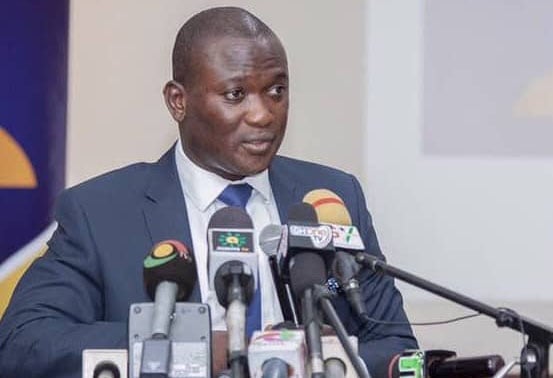The arrest and continued detention of Bernard Antwi Boasiako, popularly known as Chairman Wontumi, the Ashanti Regional Chairman of the New Patriotic Party (NPP), by the Economic and Organized Crime Office (EOCO) has sparked controversy and raised concerns about potential political motivations. Hassan Tampuli, the Member of Parliament for Gushegu, has vehemently criticized the detention, arguing that it violates Article 14 (3) of the 1992 Constitution of Ghana, which guarantees personal freedom. The crux of Tampuli’s argument centers on the duration of Wontumi’s detention, which has exceeded the constitutionally mandated 48-hour limit without formal charges. This overreach, according to Tampuli, signifies a breach of fundamental rights and suggests the possibility of political persecution.
The circumstances surrounding Wontumi’s arrest remain somewhat opaque. Initial reports indicate that he was apprehended by EOCO after leaving the Police Criminal Investigations Department (CID) earlier in the week. The arrest is allegedly connected to accusations of financial misconduct and causing financial loss to the state, although the precise nature of these allegations has not been fully disclosed. This lack of clarity fuels suspicions of political maneuvering, especially given Wontumi’s prominent position within the ruling NPP. The timing of the arrest, shortly after he left the CID, further adds to the perception of a targeted action.
Adding to the complexity of the situation is the perceived silence from EOCO regarding the specific charges against Wontumi. This lack of transparency hinders the legal process and raises questions about the justification for his continued detention. While the arrest is ostensibly related to financial misconduct, the absence of concrete details leaves room for speculation and accusations of politically motivated persecution. Wontumi’s lawyer, Andy Appiah-Kubi, has emphasized his commitment to pursuing legal avenues for his client’s release, deliberately distancing himself from the political undertones of the case.
Appiah-Kubi’s approach underscores the sensitive political climate surrounding the arrest. His insistence on focusing solely on legal procedures suggests a conscious effort to avoid escalating the situation and contributing to the already charged political discourse. He has publicly stated his intention to “stay out of the politics and the theatrics,” indicating a desire to navigate the legal complexities of the case without becoming entangled in the political fallout. His confirmation of securing sureties for Wontumi’s bail further emphasizes his commitment to adhering to legal processes to secure his client’s release.
The case raises fundamental questions about the balance between law enforcement and the protection of individual rights. While the state has a legitimate interest in investigating allegations of financial misconduct, the manner in which Wontumi’s arrest and detention have been handled raises concerns about due process and the potential misuse of state power for political ends. The prolonged detention without specific charges fuels this perception, and the lack of transparency from EOCO further exacerbates the situation.
The Wontumi case highlights the delicate interplay between law, politics, and public perception. The allegations of financial misconduct, coupled with the prolonged detention without clear charges, have created a breeding ground for speculation and accusations of political motivation. The situation underscores the importance of transparency and due process in upholding the rule of law and protecting individual rights, especially in politically charged environments. The ongoing legal proceedings will be closely watched as they will undoubtedly set a precedent for future cases involving high-profile political figures.


